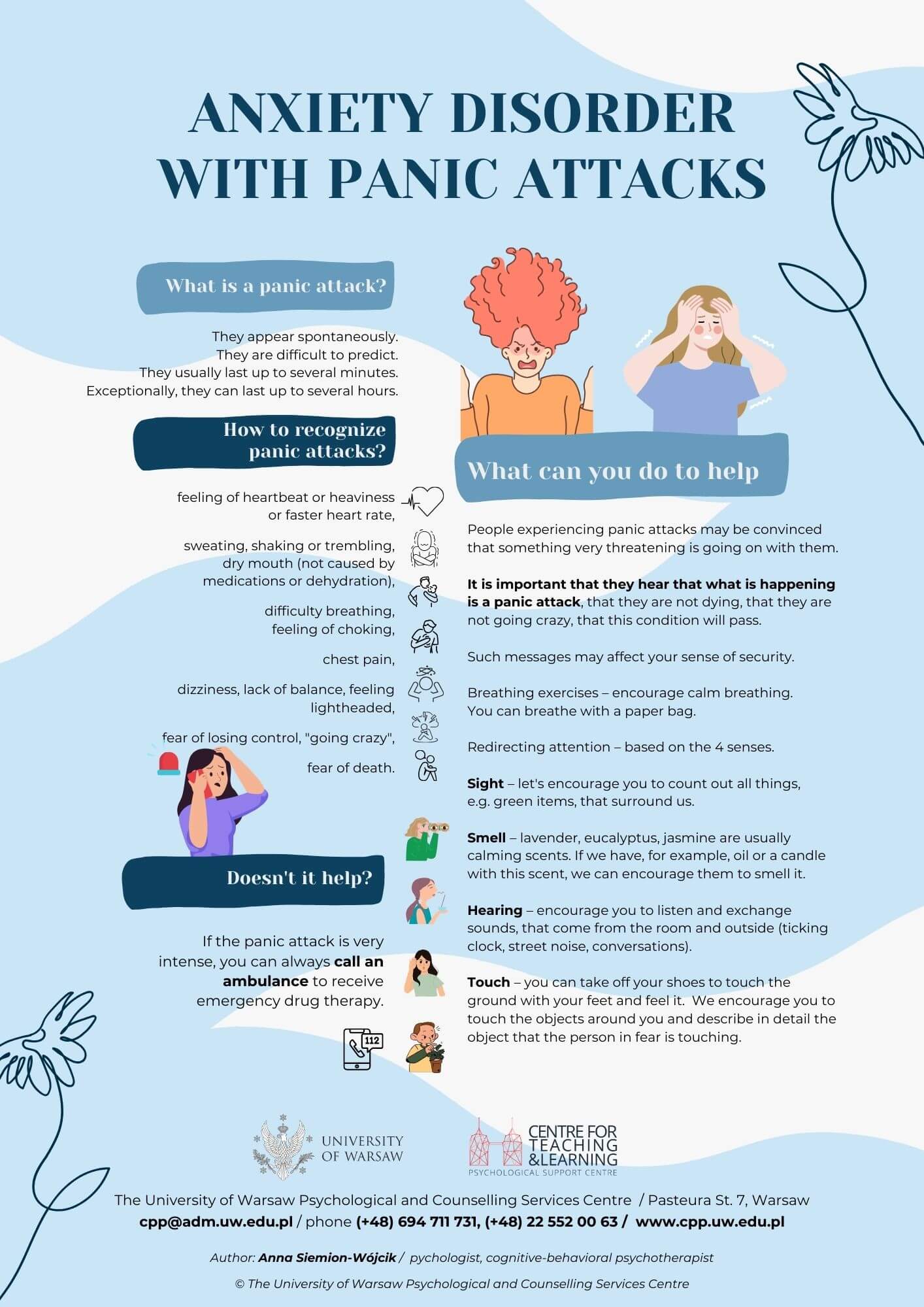Compassionate and experienced therapy for anxiety designed for you
Wiki Article
Checking Out Different Methods in Counselling for Stress And Anxiety Disorder for Lasting Modification
When dealing with stress and anxiety problems, it's important to explore a selection of counseling strategies. Each approach uses distinct understandings and devices to help you manage your signs effectively. You may locate that integrating techniques can produce the most effective outcomes. Comprehending the nuances of these strategies is essential to promoting long-term adjustment. What happens if the best mix could release a brand-new degree of emotional health for you?Recognizing Anxiousness Conditions: A Brief Overview
Anxiety problems, which impact numerous people worldwide, can substantially affect day-to-day live. You may experience overwhelming sensations of fear or worry that appear irrepressible. These sensations can bring about physical symptoms like a racing heart, sweating, or also wooziness. Typical sorts of stress and anxiety problems include generalised stress and anxiety condition, panic attack, and social anxiety disorder. Each has unique indicators, but they all share a propensity to disrupt your routine and relationships.Understanding the root causes of your stress and anxiety is vital. It may come from genes, brain chemistry, or life experiences. Acknowledging your triggers can assist you handle your reactions better. It is very important to keep in mind that you're not alone in this battle. Many individuals face similar challenges, and looking for help is a solid action toward sensation better. By learning more about stress and anxiety problems, you're currently on the path to understanding and managing your condition better.Cognitive-Behavioral Treatment: Testing Negative Thought Patterns

Determining Unfavorable Thought Triggers
Recognizing the specific triggers behind your adverse thoughts can be crucial in managing anxiety when you run into moments of distress. Beginning by paying focus to circumstances that provoke feelings of fear or concern. Is it a jampacked area, an upcoming due date, or a conversation with specific people? Write down these circumstances in a journal. This will certainly help you determine patterns in your reasoning. Likewise, notification physical feelings that accompany your unfavorable thoughts, like an auto racing heart or rigidity in your breast. By determining these triggers, you gain insight into what's fueling your anxiousness. Understanding these links is the initial step in testing those ideas and ultimately gaining back control over your psychological feedbacks.
Replacing Thoughts With Positives
Challenging adverse thought patterns is a vital step in changing your attitude and minimizing anxiety. You may typically locate on your own trapped in cycles of insecurity or disastrous reasoning. Rather than allowing these thoughts dictate your sensations, technique replacing them with practical choices or positive affirmations. As an example, when you believe, "I can not handle this," move it to, "I can manage difficulties one action at a time (Counseling services for anxiety)." This simple adjustment can greatly impact your mood. Consistently identifying and countering these unfavorable thoughts assists develop a much healthier interior discussion. Bear in mind, it takes some time and initiative, however continually practicing this strategy can lead to enduring modification, equipping you to face anxiety with restored confidence and strength
Structure Coping Approaches With Each Other
Replacing negative ideas is just the start of managing anxiousness successfully. To create lasting adjustment, you need to construct coping approaches that empower you. Cognitive-Behavioral Therapy (CBT) aids you identify and challenge those purposeless thought patterns. With each other, you and your therapist can explore how these thoughts effect your feelings and behaviors.Start by developing practical techniques, like journaling or mindfulness workouts, that permit you to confront anxiety head-on. When you face your concerns gradually, you'll find out to react in different ways.
Mindfulness and Acceptance-Based Approaches: Cultivating Present-Moment Recognition
As you navigate the intricacies of stress and anxiety, including mindfulness and acceptance-based strategies can considerably enhance your capability to cultivate present-moment recognition. By concentrating on the present moment, you'll discover that you can observe your ideas and feelings without judgment. This practice assists you recognize your anxiety without feeling bewildered by it.Engaging in mindfulness workouts, such as deep breathing, body scans, or led reflections, enables you to ground on your own in your present experience. Acceptance-based approaches urge you to embrace your emotions instead of battle against them. They lose their power over you.Incorporating these techniques into your daily routine can change just how you react to anxiety when you approve your feelings. You'll develop resilience and learn to navigate demanding situations with greater ease. Ultimately, cultivating present-moment awareness lays the foundation for long-term modification, empowering you to lead a more satisfying life.Exposure Therapy: Confronting Anxieties Gradually
Exposure therapy helps you confront your anxieties in a gradual way, making it much less frustrating. You'll discover methods to encounter anxiety-provoking situations detailed, while additionally developing coping approaches to manage your reactions. This approach encourages you to take control and decrease anxiety in time.Progressive Direct Exposure Methods
When facing stress and anxiety, progressively facing your fears can be a powerful way to reclaim control. This strategy, referred to as gradual exposure, involves slowly exposing on your own to the circumstances or objects that activate your stress and anxiety. Beginning with less intimidating situations and slowly function your means as much as more challenging ones. If you're worried of public talking, you may start by speaking in front of a mirror, after that progress to sharing ideas with a good friend, and ultimately attend to a tiny team. Each action helps desensitize you to the anxiety, building your confidence in time. Keep in mind, it's vital to pace on your own and celebrate small success as you relocate through this procedure, strengthening your ability to handle anxiety successfully.Building Coping Approaches
Building reliable coping methods is crucial for handling stress and anxiety, specifically as you confront your worries progressively. One powerful method is exposure treatment, where you begin by encountering your worries in a controlled way. Start with much less frightening scenarios and slowly function your method approximately more challenging scenarios. This gradual exposure helps desensitize you to stress and anxiety causes, making them much less overwhelming.Incorporate leisure techniques, such as deep breathing or mindfulness, to relax your mind during direct exposure. Track your progression, commemorating tiny success in the process to enhance your confidence. Keep in mind, it's all right to take your time; the goal isn't excellence yet constant enhancement. By developing these approaches, you'll equip on your own to navigate stress and anxiety and embrace life a lot more fully.Psychodynamic Treatment: Discovering Source of Anxiety
Psychodynamic treatment explores the unconscious mind, revealing the origin of your anxiety - Counseling services for anxiety. By examining your thoughts, feelings, and past experiences, this method assists you uncover underlying conflicts and unsolved problems that may contribute to your present anxiousness. You'll function with a specialist to check out childhood experiences, relationships, and psychological patterns that form your reactions today.As you get understanding into these deeper layers of your subconscious, you'll start to recognize how past occasions influence your present actions. This understanding can lead to catharsis, allowing you to process emotions you might have suppressed.Through the therapeutic connection, you can additionally determine defense reaction that may have developed in time, using a more clear path to alter. Ultimately, psychodynamic treatment furnishes you with the devices to resolve your anxiety at its core, advertising lasting transformation in your emotional healthIntegrative and All Natural Methods: Integrating Methods for Greater Effectiveness
Incorporating different therapeutic techniques can enhance your journey towards managing anxiousness better. By incorporating components from cognitive-behavioral treatment, mindfulness techniques, and alternative techniques, you can create a tailored strategy that addresses your distinct demands. You could utilize cognitive-behavioral strategies to test negative thought patterns while incorporating mindfulness workouts to ground yourself in the present moment.Additionally, discovering alternative methods such as yoga exercise or reflection can promote leisure and decrease anxiousness signs. This blend allows you to develop better self-awareness and resilience.Experimenting with these diverse methods can assist you discover what resonates most with you. Bear in mind, it has to do with finding a harmony that functions, instead of adhering to a solitary technique. This integrative strategy not just uses prompt alleviation yet likewise promotes long-term skills for handling stress and anxiety, equipping you to redeem control over your life.The Duty of Support Equipments: Structure Strength With Link
While it could appear that taking care of anxiousness is a singular journey, having a strong support system can play an important duty in your resilience. Bordering on your own with empathetic pals, household, or assistance teams develops a secure space where you can openly share your sensations and experiences. You remind yourself that you're not alone in this struggle.These relationships use check here encouragement and can provide practical coping approaches that have actually functioned for others when you attach with others. It's additionally an opportunity to acquire point of view; close friends can assist you see situations differently, lowering sensations of isolation.Moreover, emotional assistance cultivates a feeling of belonging, which can greatly reduce anxiety symptoms. By leaning on your support system, you can construct strength and tackle difficulties better. Keep in mind, reaching out for aid is a sign of strength, and it can make all the difference in your journey toward handling anxiety.Often Asked Concerns
What Are the Common Signs of Stress And Anxiety Problems?
You may experience uneasyness, tiredness, problem focusing, impatience, muscle tension, and rest disruptions. Physical signs and symptoms can consist of quick heartbeat, sweating, and trembling. Acknowledging these indicators early can help you look for proper support and therapy.
How Much Time Does Therapy Usually Last for Anxiety Conditions?
Therapy for stress and anxiety conditions normally lasts anywhere from a couple of weeks to a number of months. It truly depends on your individual demands, development, and the methods your specialist uses to help you manage your stress and anxiety efficiently.Can Medication Be Used Together With Therapy for Anxiety?
Yes, medicine can certainly be made use of along with therapy for anxiety. Combining both approaches frequently boosts treatment effectiveness, helping you manage signs while checking out underlying problems with counseling. Always consult your healthcare company for tailored advice.Exist Self-Help Approaches for Handling Anxiety?
Yes, there are several self-help methods for taking care of stress and anxiety. You can exercise mindfulness, take part in regular exercise, preserve a balanced diet, develop a regular, and utilize deep breathing techniques to help reduce anxiousness symptoms successfully.How Do I Know if I Required Specialist Assistance for Anxiety?
You should think about looking for expert aid for anxiety if it interferes with day-to-day life, triggers substantial distress, or if self-help strategies aren't functioning. Depend on your reactions; reaching out can lead to far better coping abilities and support. Typical types of anxiety disorders consist of generalized anxiety problem, panic problem, and social stress and anxiety disorder. When you run into minutes of distress, acknowledging the particular triggers behind your unfavorable ideas can be necessary in handling anxiety. Changing negative thoughts is only the beginning of managing stress and anxiety effectively. By examining your ideas, feelings, and previous experiences, this approach helps you reveal underlying problems and unsolved issues that may add to your present stress and anxiety. It's additionally a chance to obtain viewpoint; buddies can help you see circumstances in a different way, decreasing feelings of isolation (Counseling services for anxiety).Moreover, emotional support cultivates a sense of belonging, which can greatly alleviate stress and anxiety signs and symptomsReport this wiki page